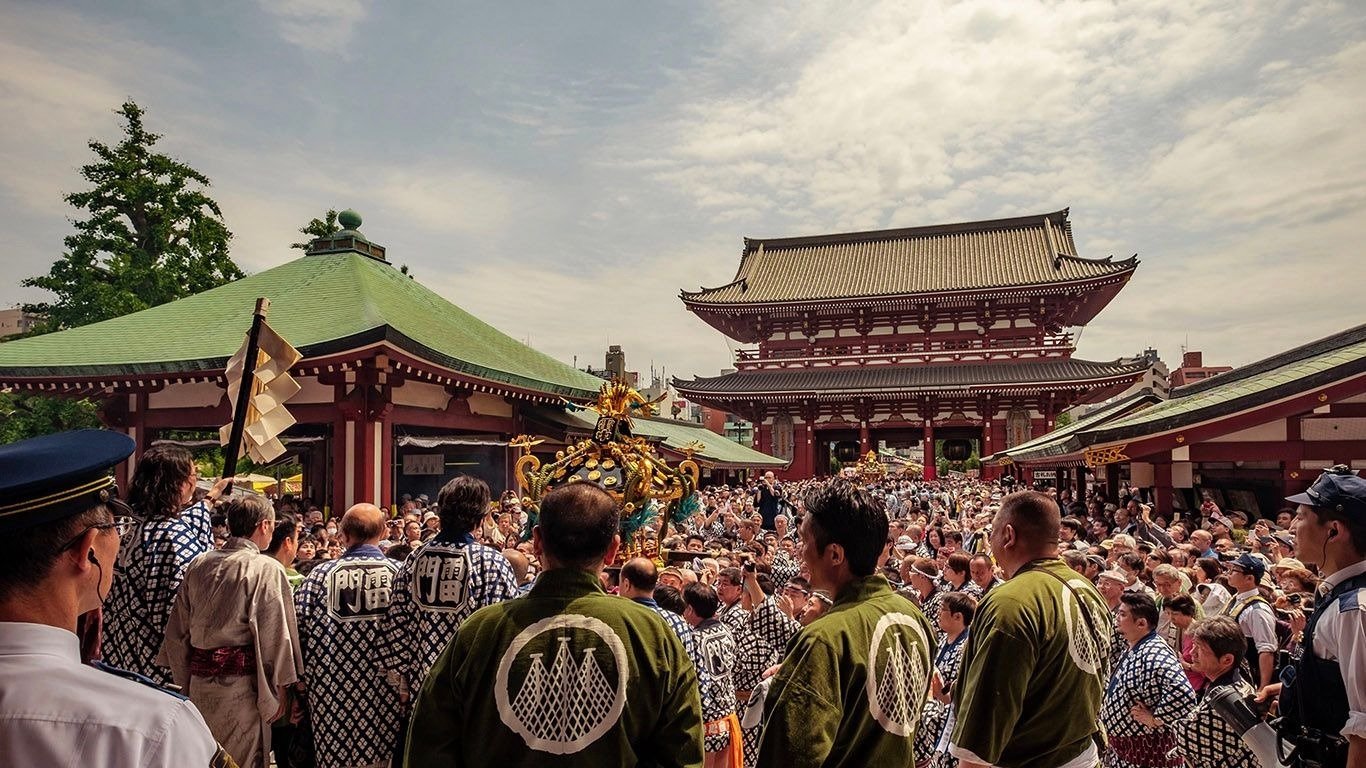Jyokyo: Understanding the Japanese Concept of Context and Harmony
In Japanese society, some words carry layers of meaning that go far beyond their literal translation. One such term is Jyokyo, a concept that serves as a cultural lens through which people interpret and navigate daily life. Jyokyo is more than just a word; it encapsulates an entire approach to understanding social dynamics, environmental context, and interpersonal behavior.
From casual conversations with friends to critical business meetings, Jyokyo guides individuals in reading the situation, responding thoughtfully, and maintaining harmony. It also fosters mindfulness, encouraging people to be fully aware of their surroundings and interactions.
Jyokyo in depth, covering its history, meaning, core principles, applications in communication and daily life, and its relevance in modern society and global contexts. By the end, readers will gain a holistic understanding of this profound Japanese concept and its transformative potential in both personal and professional life.
What is Jyokyo?
The term Jyokyo is composed of two kanji characters:
- jou → state or condition
- kyou → situation or circumstance
Taken together, Jyokyo literally refers to a “situation” or “current state of affairs.” However, the deeper meaning transcends mere facts. Jyokyo emphasizes the importance of understanding context, social cues, and the environment in which events unfold. It is about perceiving the unspoken dynamics that influence interactions and responding in ways that respect social harmony.
Jyokyo is distinct from related Japanese terms:
- Jijou: Refers to personal circumstances, often private matters affecting an individual.
- Kuuki: Literally “air” or “atmosphere,” referring to the mood or emotional tone of a setting.
While Jijou and Kuuki address aspects of personal or environmental conditions, Jyokyo integrates them, providing a holistic understanding of the situation that informs behavior and decision-making.
Historical and Cultural Origins
Jyokyo’s origins are deeply rooted in Eastern philosophies such as Zen Buddhism and Taoism, which emphasize mindfulness, self-awareness, and living in harmony with nature and others. These traditions encourage individuals to observe the present moment attentively, reflecting on the interconnectedness of all things.
In Japan, Jyokyo became more pronounced during the 20th century, a period marked by rapid modernization and social change. Spiritual leaders and cultural thinkers adapted ancient wisdom to help people navigate increasingly complex social environments. Jyokyo evolved as a practical framework for maintaining balance, understanding subtle social cues, and fostering collective harmony.
Over time, Jyokyo has influenced Japanese cultural norms and etiquette, shaping practices in everything from family interactions and ceremonial customs to professional behavior and decision-making. Its enduring relevance demonstrates how traditional philosophies can be seamlessly integrated into contemporary life.
Core Principles of Jyokyo
At its heart, Jyokyo is guided by three fundamental principles: harmony, balance, and awareness. Each principle informs how individuals perceive situations and act within them.
Harmony
Harmony, or Wa, is a central value in Japanese culture. Jyokyo encourages individuals to maintain peace in social and professional interactions, avoiding conflict and fostering understanding. By considering the broader context, one acts in a way that sustains positive relationships and a cooperative environment.
Balance
Balance involves adapting behavior to fit the social context and group dynamics. Life in Japan often requires juggling multiple roles, responsibilities, and expectations. Jyokyo teaches that one should adjust their actions so as not to disrupt collective cohesion while fulfilling personal or professional duties.
Awareness
Awareness, or Kikubari, is the ability to sense and respond to the emotions, needs, and comfort of others. Jyokyo promotes empathetic observation—recognizing subtleties in tone, body language, and situational nuances—and acting thoughtfully to maintain harmony.
Together, these principles provide a framework for navigating social interactions with sensitivity, mindfulness, and consideration.
Jyokyo in Communication
Jyokyo plays a vital role in Japanese communication, where indirectness and contextual understanding often take precedence over blunt expression.
Formal vs. Informal Usage
In formal settings, such as business meetings or official announcements, Jyokyo guides phrasing and tone to convey respect, consensus, and professionalism. In informal settings, such as conversations with friends or family, Jyokyo ensures that interactions remain polite, considerate, and context-appropriate.
Business Examples
- Market reports and corporate meetings: Decisions are often described as responses to the Jyokyo, emphasizing adaptability to circumstances rather than unilateral authority.
- Decision-making: A manager might say, “Based on the Jyokyo, we will proceed cautiously,” signaling strategic caution influenced by environmental and social conditions.
Daily Life Examples
- Checking in with a friend by asking, “How’s the Jyokyo today?” shows awareness of their current situation beyond mere words.
- Adapting tone or behavior depending on the mood of a gathering demonstrates sensitivity to the collective atmosphere.
Practical Tips for Applying Jyokyo
- Observe subtle verbal and non-verbal cues.
- Consider the context of relationships, hierarchy, and setting before responding.
- Balance directness with tact to maintain harmony.
- Adjust your behavior to avoid conflict and support group cohesion.
Jyokyo in Modern Japanese Life
Despite globalization and technological advancement, Jyokyo remains an integral part of modern Japanese culture. Its influence spans professional environments, personal interactions, and daily rituals.
Work Culture
- Japanese workplaces emphasize teamwork and consensus-building, often guided by Jyokyo.
- Practices such as nemawashi (informal groundwork) allow for the consideration of all opinions before formal decisions, reflecting Jyokyo principles.
- Seniority and hierarchy are respected, ensuring smooth communication and reducing potential conflict.
Daily Life
- Jyokyo informs social etiquette, mindfulness in daily activities, and attention to others’ comfort.
- Rituals like tea ceremonies or group meals incorporate Jyokyo by fostering respect, harmony, and attentiveness.
Adaptation to Digital Communication
- Even in emails, messaging apps, and remote work settings, Jyokyo guides tone, phrasing, and the pacing of interactions.
- Younger generations balance traditional norms with direct globalized communication while retaining the essence of Jyokyo.
Jyokyo as a Philosophical and Mindfulness Practice
Beyond its role in communication and social interactions, Jyokyo serves as a philosophical framework and mindfulness practice. Rooted in awareness and presence, it encourages individuals to observe life attentively and respond thoughtfully rather than react impulsively.
Connection with Mindfulness and Self-Awareness
Jyokyo aligns closely with meditation, self-reflection, and conscious living. By tuning into the present moment, practitioners cultivate a deep understanding of both internal states (thoughts, emotions, impulses) and external circumstances (social cues, environment).
Applications in Personal Growth
- Stress Reduction: Mindfully assessing situations allows individuals to avoid overreacting, reducing stress and anxiety.
- Emotional Resilience: Awareness of social dynamics and context builds the ability to adapt to challenges while maintaining inner stability.
- Self-Reflection: Observing one’s own behavior in relation to the environment fosters personal insight and growth.
Practical Exercises
- Journaling: Record daily experiences, emotions, and observations about interactions to cultivate awareness.
- Mindful Tea Rituals: Prepare and enjoy tea slowly, focusing on movements, sensations, and mindfulness.
- Nature Walks: Walk outdoors observing sounds, sights, and smells, connecting with surroundings to enhance clarity and grounding.
Benefits of Practicing Jyokyo
Regular engagement with Jyokyo principles brings holistic benefits to both personal and professional life.
Mental and Emotional Benefits
- Mental Clarity: Observing situations carefully improves decision-making and reduces mental clutter.
- Emotional Stability: Awareness and empathy lead to calmer responses and stronger emotional regulation.
Interpersonal Benefits
- Stronger Relationships: Attuning to the needs and feelings of others fosters trust and deeper connections.
- Increased Empathy: Understanding unspoken social cues encourages compassionate communication.
Personal Growth and Balance
Jyokyo encourages balanced living, integrating personal goals with social responsibilities. Practitioners experience a sense of purpose and alignment between actions and values, promoting overall well-being.
Common Misconceptions
Many misunderstand Jyokyo as a purely spiritual or esoteric practice. Let’s clarify common misconceptions:
- Jyokyo is not just meditation: Mindfulness is part of it, but Jyokyo extends to social interactions, decision-making, and cultural awareness.
- No extensive training required: Anyone can begin practicing Jyokyo by observing, reflecting, and responding consciously.
- Not about passivity or isolation: Jyokyo encourages active engagement with life, emphasizing adaptability and thoughtful action.
- Universal relevance: While rooted in Japanese culture, its principles of awareness, context-sensitivity, and harmony apply globally.
Global Relevance and Cross-Cultural Applications
Enhancing Global Communication
Understanding Jyokyo improves cross-cultural interactions by promoting sensitivity to others’ perspectives, moods, and social norms.
Application in Professional Life
- Teamwork: Practicing Jyokyo ensures collaborative environments where everyone’s contributions are valued.
- Conflict Resolution: Awareness of context allows for diplomatic problem-solving without escalating tension.
Application in Personal Life
- Building empathy and emotional intelligence in relationships.
- Adapting behavior in multicultural environments, travel, or international collaboration.
Testimonials and Real-Life Examples
Personal Experiences
- A practitioner shared how incorporating Jyokyo in daily interactions helped her manage workplace stress and build stronger relationships with colleagues.
- Another practitioner described how mindful tea rituals and journaling improved emotional resilience during challenging times.
Expat Experiences in Japan
- Foreigners living in Japan often find Jyokyo essential for navigating social hierarchies, professional etiquette, and casual conversations.
- Awareness of Jyokyo allows expatriates to adjust behavior respectfully, fostering smoother integration into Japanese work and social environments.
Conclusion
Jyokyo is more than a cultural term; it is a practical philosophy that blends mindfulness, self-awareness, and social harmony. From daily life to professional settings, Jyokyo equips individuals with tools to navigate complex social situations, reduce stress, and strengthen relationships.
By applying Jyokyo principles—observing context, maintaining harmony, and practicing awareness—we can enrich personal growth, improve interpersonal interactions, and adapt gracefully to diverse environments.
Whether in Japan or elsewhere in the world, adopting Jyokyo encourages mindfulness, empathy, and adaptability—qualities that enhance every aspect of modern life.
Call to Action: Start observing situations more attentively, respond thoughtfully, and cultivate awareness in daily interactions. By embracing Jyokyo, you take a step toward a more balanced, mindful, and harmonious life.
FAQ About Jyokyo
How is Jyokyo different from Jijou or Kuuki?
- Jijou: Personal circumstances or private matters.
- Kuuki: Emotional atmosphere or mood.
- Jyokyo: Holistic understanding of context, environment, and social dynamics.
Can Jyokyo be practiced outside Japan?
Yes. Its principles of awareness, harmony, and adaptability are universal and applicable across cultures.
Is Jyokyo only for formal situations?
No. Jyokyo is relevant in both formal and informal interactions, from business meetings to casual conversations.
How can Jyokyo improve personal and professional life?
By enhancing mindfulness, empathy, and situational awareness, Jyokyo fosters stronger relationships, reduces conflict, and supports personal growth.






